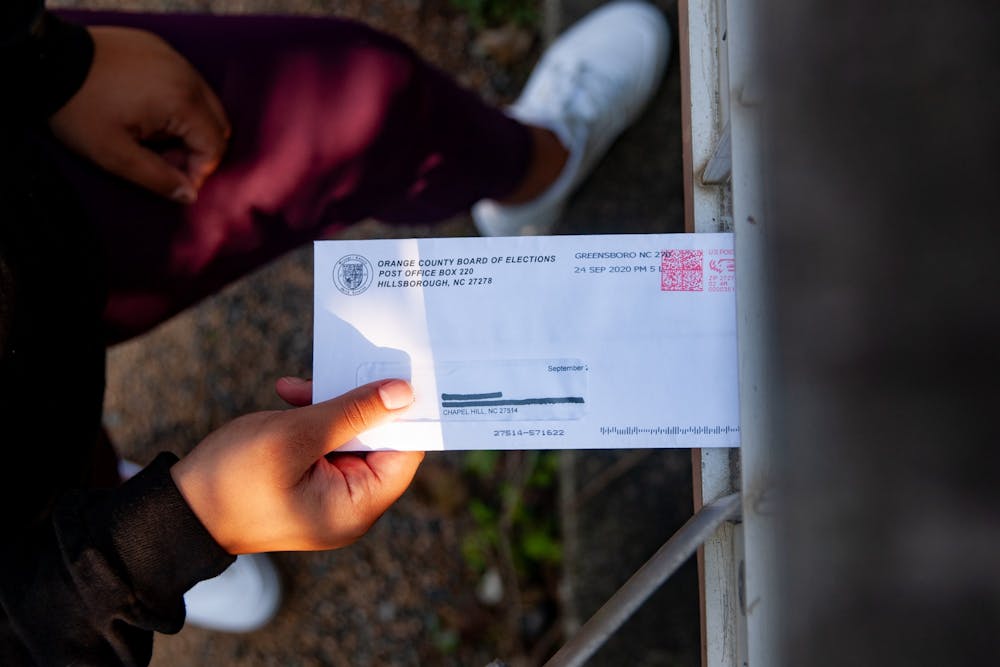“I’m sure there are consequences of historical, systemic oppression that sort of plays into that as well in terms of just access to the ballots and familiarity with election procedures,” he said.
Michael Bitzer, professor of politics and history at Catawba College, said it is important to note that ballot deficiencies are not equivalent to voters being denied the right to vote. He said when ballots are missing required information, they are marked as deficient. As of now, how those deficiencies will be resolved is uncertain.
A joint motion filed against NCSBE on Sept. 22 updated the cure process for absentee ballots, which allowed voters to correct absentee ballot issues, including incomplete witness information.
However, on Saturday, a federal judge issued a temporary restraining order on that settlement. The NCSBE followed with a memo instructing county boards that receive deficient ballots to take no action. Should the voter call their county board of elections, the board is advised to inform the voter that there is an issue with their ballot and the cure process is being considered by the courts.
Gerry Cohen, an adjunct instructor at Duke University and a member of the Wake County Board of Elections, said changes in regulations surrounding the cure process are confusing not just for voters, but also for election officials.
“One of the problems that occurred is the template for the state, on the return envelope, highlighted the voter signature line and the signature line for the witness to sign, but didn’t highlight the lines below that for the witness to print their name and print or handwrite their address,” he said.
Irving Joyner, a professor at the North Carolina Central University School of Law, said he has observed reluctance among some witnesses to provide their address on a ballot.
“We’ve tried to help the witnesses understand that there will not be any repercussions to them because they put their full addresses, which is required, on the envelope,” he said.
Cross-county disparity in ballot deficiency
Racial disproportions in ballot deficiency rates also vary by county. Guilford County, for instance, has reported a 10.4 percent ballot deficiency rate among Black voters, a 3 percent ballot deficiency rate among white voters and a 5.1 percent ballot deficiency rate overall.
Other counties, like Orange County, have still reported significant racial disparities in deficiency rates, but lower deficiency rates overall: 3.5 percent among Black voters, 0.4 percent among white voters and 0.6 percent total.
Loperfido said the Election Protection Hotline – which the Southern Coalition for Social Justice runs in collaboration with other voting rights groups, law students and independent legal volunteers – has received around 100 calls per day for the past month, many of them in regards to the absentee voting process. He said this call volume is unusually high.
To get the day's news and headlines in your inbox each morning, sign up for our email newsletters.
Joyner said scrutiny around mail-in ballots and calls for people to go to the polls are creating an era of fear.
“So that’s one of the things that we seek to neutralize in terms of helping people to understand just how the process works such that those threats of what they’ve heard are minimized,” Joyner said.
Bitzer said he does not want to ascribe these racial disparities to nefarious, intentional misdoings by the NCSBE.
“I think it’s just incumbent upon the voters to, if they’re going to utilize this particular approach, they have to do the work and make sure that they’re doing it properly,” he said.
He noted that even if a voter requests and completes an absentee ballot, they do not have to return it by mail. They can also bring it to their county board of elections or, starting on Oct. 15, hand it to a staff member at their early voting site.
Voters can track the status of their mail-in ballots using BallotTrax.
Ellis praised House Bill 1169, a bipartisan effort that increased election funding and decreased the witness requirement from two to one.
“I think if we are a state that wants to fight against suppression and wants to ensure that all ballots cast could be counted, then the common sense provisions from 1169, the first that we’ve seen in some time, should be retained in 2021,” she said.
@SLesnewski
@DTHCityState | citydailytarheel.com



